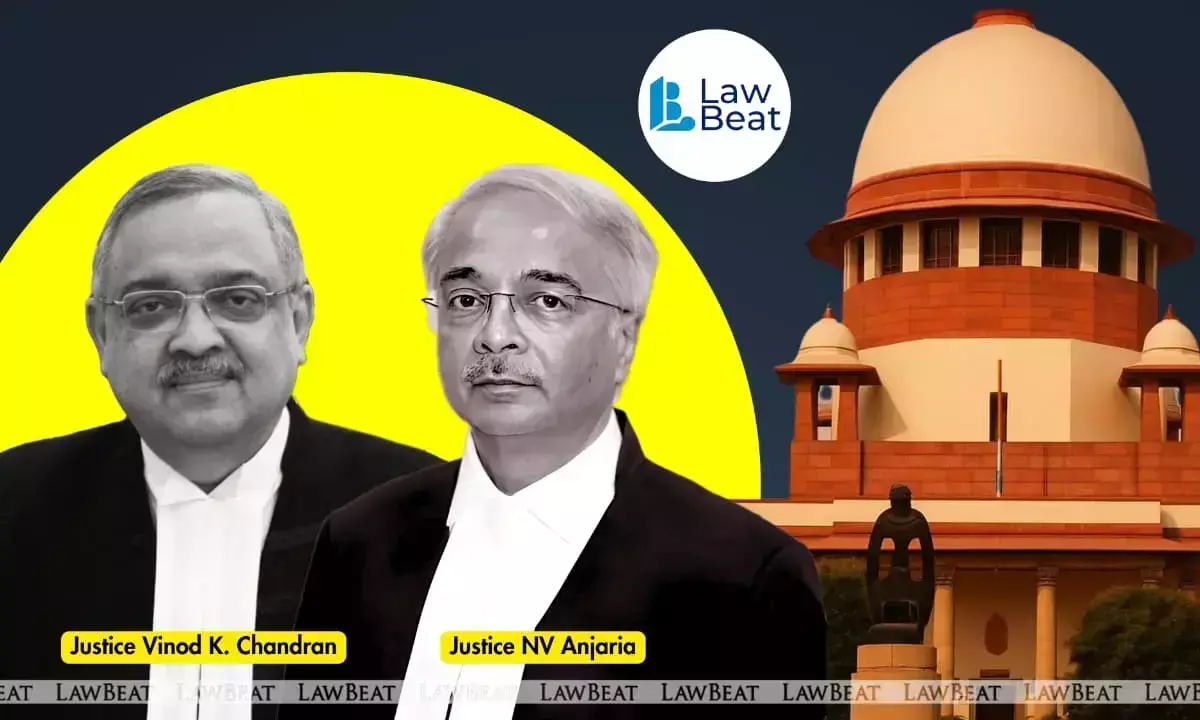Vehicle Owner Need Not Verify Driver’s Licence with RTO: Supreme Court

Vehicle Owner’s Duty Ends with Checking Licence, Insurer Must Prove Breach: SC Clarifies
The Supreme Court has ruled that a vehicle owner hiring a driver is only required to inspect the driving licence presented by the applicant and is not expected to verify its authenticity with the Regional Transport Office (RTO). The Court clarified that the insurance company must prove, from the totality of the facts, that the owner failed to exercise due diligence while employing the driver or entrusting the vehicle in order to claim a breach of policy under the Motor Vehicles Act.
Bench of Justices K. Vinod Chandran and N.V. Anjaria made this observation while allowing an appeal filed by Hind Samachar Ltd. (Delhi Unit), which had challenged the High Court’s “pay and recover” directions in favour of the National Insurance Company. The directions had permitted the insurer to recover the compensation amount from the vehicle owner following a fatal road accident involving a truck insured by the company.
Setting aside the High Court’s order, the Supreme Court found no basis for the inference that the vehicle owner had colluded with the driver to employ someone holding a fake licence. The Bench held that there was “absolutely no reason to sustain the order of the High Court mulcting the liability on the owner of the truck.”
The case arose from an accident that occurred on January 26, 1993, in which nine persons died and two others were injured after a truck owned by Hind Samachar Ltd. collided with a Matador van carrying passengers. The Motor Accident Claims Tribunal found both drivers negligent and apportioned liability between the insurers of the truck and the van in the ratio of 75:25. Compensation was paid to the victims accordingly. The dispute before the Supreme Court was limited to whether the insurer could recover the compensation from the truck owner under the “pay and recover” principle.
Hind Samachar contended that the Tribunal had rightly directed the insurer to indemnify the owner of the vehicle in line with established precedents, while the High Court wrongly presumed that the owner colluded with the driver to secure a fake licence. The company submitted that the High Court’s finding was based on conjecture, particularly since the register produced from the District Transport Office (DTO), Gurdaspur, contained numerous interpolations and deletions that rendered it unreliable.
The insurance company argued that both driving licences—one produced by the police and another by the owner—were found to be fake and that the owner had therefore been negligent. It further contended that since the owner’s representative, rather than the driver, produced the licence before the Tribunal, this indicated collusion between them. The insurer maintained that the High Court’s decision was correct and required no interference.
Rejecting the insurer’s submissions, the Supreme Court referred to a series of precedents, including United India Insurance Co. v. Lehru (2003), National Insurance Co. v. Swaran Singh (2004), PEPSU Road Transport Corporation v. National Insurance Co. (2013), and IFFCO Tokio General Insurance Co. v. Geeta Devi (2023). These decisions collectively hold that even if a driving licence later turns out to be fake, the insurance company remains liable to pay compensation unless it can prove that the owner knowingly entrusted the vehicle to an unlicensed driver.
Quoting from Lehru, the Bench reiterated that “even if the licence is fake, the insurance company is liable to pay compensation if they fail to prove that the insured had deliberately committed breach in entrusting the vehicle to a driver who had a fake licence.” Referring to Geeta Devi, the Court further observed that insurers often claim that vehicle owners have failed to exercise due diligence, although neither law nor policy terms impose such an obligation.
Clarifying the scope of the owner’s responsibility, the Bench stated that “the owner of a vehicle employing a driver can only look at the licence produced by the person seeking employment and is not expected to verify from the licence issuing authority whether the licence is fake or not.”
Addressing the insurer’s allegation of collusion, the Supreme Court noted that the vehicle owner in this case was a company rather than an individual, and there was no evidence of any intentional breach. The Court observed that merely because the owner had produced the driver’s licence before the Tribunal did not imply collusion. On the contrary, it showed that the owner had acted diligently by obtaining and presenting the licence to substantiate its claim for indemnification.
The Court also held that the DTO Gurdaspur register relied on by the insurer was riddled with interpolations and deletions, making it unsafe for reliance. The High Court’s inference of collusion based on the presence of a colour photograph in a 1990 record was described as “unfounded.” The Bench noted that there was no pleading or evidence to show that the owner had failed to exercise due diligence at the time of hiring the driver. The insurer had not cross-examined the witness from Hind Samachar on how the driver was employed, whether he was permanent or temporary, or when his employment began—facts essential to establish negligence.
Concluding that there was no deliberate breach of policy terms by the insured, the Supreme Court restored the Tribunal’s order directing the insurer to indemnify the owner. The compensation amounts, as modified by the High Court, were left undisturbed.
Case Title: Hind Samachar Ltd. (Delhi Unit) v. National Insurance Company Ltd. & Ors.
Bench: Justices K. Vinod Chandran and N.V. Anjaria
Date of Judgment: October 8, 2025
